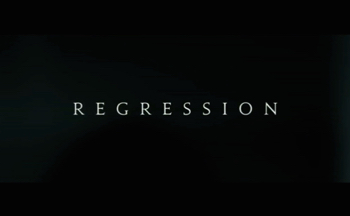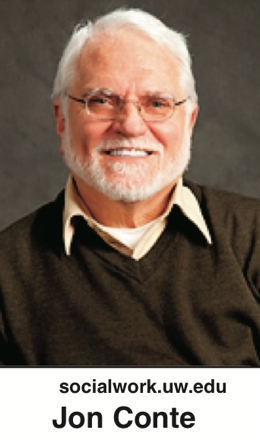Rascals case in brief
In the beginning, in 1989, more than 90 children at the Little Rascals Day Care Center in Edenton, North Carolina, accused a total of 20 adults with 429 instances of sexual abuse over a three-year period. It may have all begun with one parent’s complaint about punishment given her child.
Among the alleged perpetrators: the sheriff and mayor. But prosecutors would charge only Robin Byrum, Darlene Harris, Elizabeth “Betsy” Kelly, Robert “Bob” Kelly, Willard Scott Privott, Shelley Stone and Dawn Wilson – the Edenton 7.
Along with sodomy and beatings, allegations included a baby killed with a handgun, a child being hung upside down from a tree and being set on fire and countless other fantastic incidents involving spaceships, hot air balloons, pirate ships and trained sharks.
By the time prosecutors dropped the last charges in 1997, Little Rascals had become North Carolina’s longest and most costly criminal trial. Prosecutors kept defendants jailed in hopes at least one would turn against their supposed co-conspirators. Remarkably, none did. Another shameful record: Five defendants had to wait longer to face their accusers in court than anyone else in North Carolina history.
Between 1991 and 1997, Ofra Bikel produced three extraordinary episodes on the Little Rascals case for the PBS series “Frontline.” Although “Innocence Lost” did not deter prosecutors, it exposed their tactics and fostered nationwide skepticism and dismay.
With each passing year, the absurdity of the Little Rascals charges has become more obvious. But no admission of error has ever come from prosecutors, police, interviewers or parents. This site is devoted to the issues raised by this case.
On Facebook
Click for earlier Facebook posts archived on this site
Click to go to
Today’s random selection from the Little Rascals Day Care archives….
Click for earlier Facebook posts archived on this site
Click to go to
Today’s random selection from the Little Rascals Day Care archives….
What movie may doubt, book surely doesn’t
 June 11, 2015
June 11, 2015
“In (the upcoming movie) Regression, Ethan Hawke plays a detective investigating accusations by a woman against her father. There’s a twist: The father has admitted wrongdoing, though he has no recollection of what happened – and a psychologist is summoned to help him recover his memories….
“The trailer is opaque in its rendering of what crime the father may have committed, but it’s probably meant to echo the Satanic witch hunts that gripped parts of America in the 1980s and early ’90s…. The daughter’s haunting memories include ‘chanting,’ ‘robes’ and a ‘black mask’….
“So it’ll be interesting to see (director Alejandro) Amenábar’s take in Regression: Does he present the case as a real, Satanic experience that actually occurs within the world of the story, or will the film be a larger commentary on the horrific fallout of unfounded hysteria?
“Here’s hoping it’s the latter…. We’ll find out when Regression opens in August.”
– From “Ethan Hawke and Emma Watson Battle Satan (Maybe) in the Trailer for Regression”
by Aisha Harris at Slate (June 10)
Also arriving in August – but much less ambiguously: “We Believe The Children: A Moral Panic in the 1980s” by Richard Beck. According to a starred review in Publishers Weekly, “Beck marshals extensive research into an absorbing dissection of a panic whose tremors still affect us today.”
‘Satan’ issue was 100% baloney – but so what?
Dec. 5, 2012
As noted previously, my requests for retraction to Nursing Research and Child Abuse & Neglect went nowhere. But I found a spark of interest at a third journal, Relational Child & Youth Care Practice.
As well I should have – in 1990, RCYCP (then known as the Journal of Child and Youth Care) published not just a single article affirming the existence of day-care ritual abuse but an entire special issue.
“In the Shadow of Satan: The Ritual Abuse of Children” included “A Case of Multiple Life-Threatening Illnesses Related to Early Ritual Abuse” by Rennet Wong and Jock McKeen, “Ritual Child Abuse: A Survey of Symptoms and Allegations” by Pamela S. Hudson and “Satanic Ritual Abuse: A Cause of Multiple Personality Disorder” by George A. Fraser.
My request for retraction elicited this response from RCYCP:
“…. Carol Stuart and Grant Charles, Editors of RCYCP… have agreed that a statement in the next issue about the original article and the wrongful prosecution of these defendants would be appropriate. Could you please provide… a draft of what you think is appropriate, ensuring correct names, etc. Our editors will then review and finalize and confirm any questions or issues with you.”
Boy, was I excited! This is what I proposed:
“In 1990 the Journal of Child and Youth Care (now Relational Child & Youth Care Practice) published a Special Issue entitled ‘In the Shadow of Satan: The Ritual Abuse of Children.’
“All five articles in the issue were based on the writers’ erroneous belief in ‘satanic ritual abuse,’ a moral panic that led to wrongful prosecutions against day cares in the United States, Canada and elsewhere during the 1980s and 1990s.”
A few days later I received this change of plan from RCYCP:
“We have carefully reviewed the 1990 Special Issue… and found no reference to the Edenton Seven or the Little Rascals Day Care. As such, our editors will not be printing a retraction.”
Of course, I responded:
“The Little Rascals and McMartin cases were but two manifestations of the moral panic of satanic ritual abuse. In the 1980s and early 1990s, numerous similar, if less publicized, prosecutions occurred across North America and as far as New Zealand and Germany.
“All these cases were rooted in the belief affirmed and promoted in the Special Issue….
“Little Rascals and McMartin are mentioned only indirectly, but my request for a retraction addresses – as does the issue – the entire false concept of satanic ritual abuse.
“I hope this clarification will move the editors to reconsider.”
So far, it hasn’t.
Kelly used hard work to survive hard time
Oct. 21, 2011
How would you handle six years behind bars after being wrongfully convicted? Here’s how Bob Kelly did it:
 “In jail (in Chowan County before being found guilty) there was nothing but sitting and waiting. Central Prison was easier – I could work.
“In jail (in Chowan County before being found guilty) there was nothing but sitting and waiting. Central Prison was easier – I could work.
“A warden told me, ‘Whoever kills Bob Kelly will have a trophy. I can put you in lockup, where you’ll be safe.’ But that would’ve meant spending 23 hours a day in a cell. I said, ‘Put me in the general population. I’ve got 12 life sentences, and I’m not going to do my time hiding.’
“But I tried to be smart. It was two years before I went outside in the yard. All I could think of was, if I got in a fight, how would that affect the appellate court?… Only one time did a jailhouse gangster lay his hands on me, and I realized I had to stand up to him to keep it from happening again….
“My first job was janitor in G block. I waxed the floor, emptied the trash, kept it like my home. They don’t allow bleach, because it would get thrown in the guards’ eyes, but I managed to talk a guy in the laundry room out of a bottle. It was great for spraying down the showers. My block was the only one in the whole prison that smelled like Clorox….
“My next job was running the canteen for lockup. The guys who had been there before me had watered down the Cokes and coffee and pocketed the difference. I wanted to run the best canteen I could, so I started giving full measure….
“You know what the other prisoners said? ‘You’re stupid – don’t you know you could be making money?”
What? A journal willing to retract?
 March 6, 2014
March 6, 2014
First of three posts
Psychiatric Times isn’t the only professional journal to avoid reexamining the “satanic ritual abuse” era.
Other examples include Nursing Research, Child Abuse & Neglect and Relational Child and Youth Care Practice. The editors of each of these journals turned down my requests to retract their articles supporting and promoting the SRA moral panic.
One editor did offer a glimmer of willingness: Jon Conte at the Journal of Interpersonal Violence.
The road to publication, however, has proved long and bumpy and ultimately – spoiler alert – a dead end.
Here are excerpts from my correspondence with Dr. Conte, who is a professor in the School of Social Work, University of Washington:
Powell (Oct. 30, 2012):
Hello Dr. Conte….
I am an independent researcher and blogger in Charlotte, North Carolina. My goal is to obtain a statement of innocence for the Edenton Seven, the wrongfully prosecuted defendants in the Little Rascals Day Care case (1989-1997).
In December 1989 the Journal of Interpersonal Violence published the article “Stress Responses of Children to Sexual Abuse and Ritualistic Abuse in Day Care Centers” by Susan J. Kelley.
In December 1990 the Journal published the article “Ritualistic Child Abuse in a Neighborhood Setting” by Barbara Snow and Teena Sorensen.
Can you tell me whether the Journal ever published a retraction for these articles? And if not, would it consider doing so now?
Conte (Oct. 30, 2012):
I do not believe JIV (ever) published a Comment on this 1989 manuscript. I would not prejudge any submission so long
as it is consistent with the overall mission and focus of the journal. A comment on a previous article, even years after publication would certainly be reviewed. Any submission must be scholarly and consistent with the purpose of knowledge development or dissemination. Your use of the term “recantation” (actually, “retraction”) would appear to suggest an advocacy purpose and that purpose alone would not be appropriate for a manuscript we would review.
Powell (Nov. 12, 2012):
I apologize for not having been clearer in my request.
What I am seeking is not a recantation but a simple, concise retraction by the editors, acknowledging that the concept accepted and promoted in these two articles – ritual abuse in day cares – was in fact entirely a product of a moral panic.
I am not an academic or professional, but I believe an examination of the literature in the intervening years would fully support such a retraction.
This passage is from the Retraction Guidelines of the Committee on Publication Ethics: “Retraction is a mechanism for correcting the literature and alerting readers to publications that contain such seriously flawed or erroneous data that their findings and conclusions cannot be relied upon. Unreliable data may result from honest error or from research misconduct.”
Does the Journal of Interpersonal Violence want to leave these articles as its last word on the era of unfounded claims of ritual abuse in day cares?
Conte (Nov. 13, 2012):
As I said before we would accept a letter to the Editor or longer manuscript. The letter would not be peer reviewed.
The longer manuscript would be.
Science and knowledge progress slowly. There are many things which are published in good faith, blindly reviewed, and found acceptable for publication. Then some years later with more research, experience, or knowledge what was once acceptable is seen in a new light. I am not saying this has taken place with the manuscript you have identified. It is not my intent to review previously published work in light of the change in times.
If you wish to write a letter for publication I am happy to work with you in that effort.
Powell (Nov. 13, 2012):
I appreciate your thoughtful response. As much I would prefer a retraction – professionally researched and peer-reviewed – I appreciate your offer to consider a letter to the editor. Here is what I’d like to say:
“In December 1989 the Journal of Interpersonal Violence published ‘Stress Responses of Children to Sexual Abuse and
Ritualistic Abuse in Day Care Centers’ by Susan J. Kelley.
“In December 1990 it published ‘Ritualistic Child Abuse in a Neighborhood Setting’ by Barbara Snow and Teena
Sorensen.
“Both these articles endorsed and promoted a concept – satanic (or sadistic) ritual abuse in day cares – that subsequent research has proven to be entirely false. Today no respected social scientist will argue otherwise.
“The Little Rascals and McMartin cases were but two manifestations of this moral panic of the 1980s and early 1990s. Less publicized prosecutions occurred across North America and as far away as New Zealand and Germany.
“Untold harm was done to defendants, families and child-witnesses.
“The Journal of Interpersonal Violence should not allow these articles to stand as its last word on claims of day-care ritual abuse.”
Conte (Jan. 18, 2013):
I would suggest you consider several additional points: 1) you cite research which proves ritual abuse “false.” I don’t think you need to do a comprehensive research review, but since JIV is a scholarly journal, you should cite some of the research you are referring to. I am not sure that this research “proves” that RA does not exist but rather raises questions.
You might also make reference (if true) that no law enforcement investigation has every uncovered evidence that such “cults” exist. You also need to specify the harm that you feel these articles did. For example, does the term RA in the title imply belief that RA exists? I don’t think you have to prove some harm, but be specific in what you believe the harm is.
Also, and perhaps more importantly, if there are issues within the articles (i.e., not just the title) then describe what you see as the conceptual, methodological, etc., problems.
We are probably going to invite the authors to respond, and if they choose to do so I will share their responses
before we publish your letter or their responses.
Powell (Jan. 25, 2013):
I appreciate your guidelines and hope to produce something that is not only publishable but also contributes to discussion of this issue.
Conte (Sept. 4, 2013):
I am happy to work with you….
Next: My second attempt to make my case in the Journal of Interpersonal Violence.











0 CommentsComment on Facebook